
3 Fast & Accurate Ways
[ad_1]
Have you been Googling your keyword to see where you’re ranking?
Never do that. It won’t be accurate because Google personalizes search results by things like your location, language, and device. Even using an incognito or private tab doesn’t fully solve the problem.
To check rankings accurately, you need to use tools.
Use our free keyword rank checker. Enter your target keyword, add your website, and choose your target location.
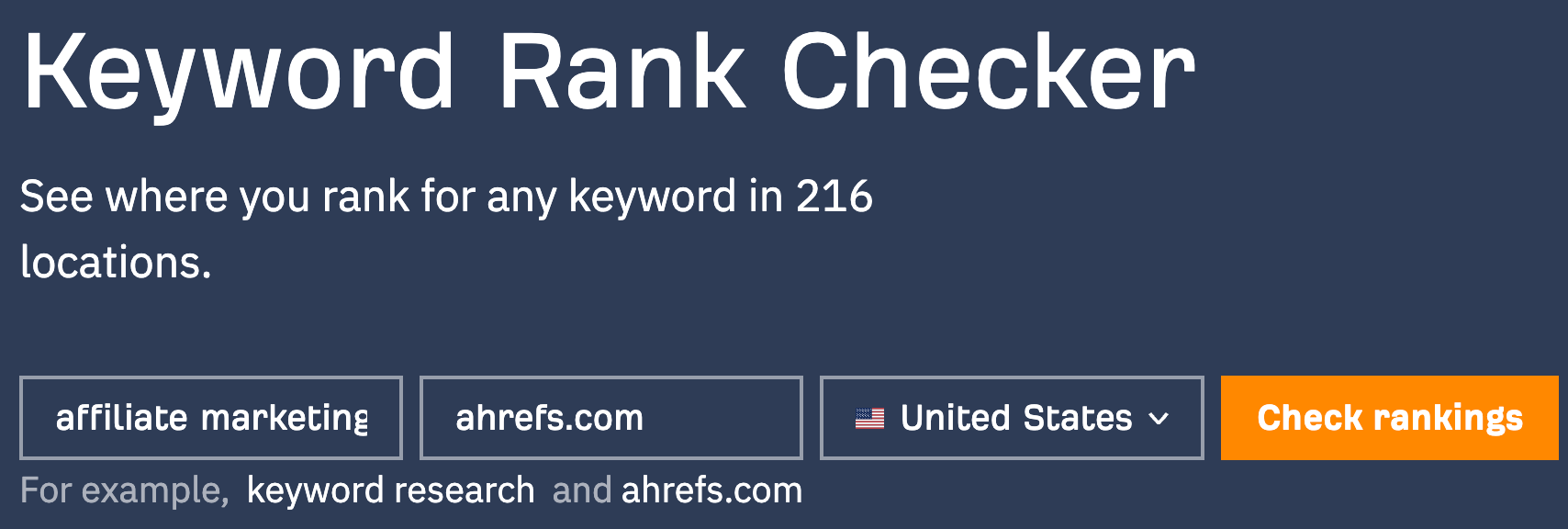
Then, hit “Check rankings.” We’ll show you your current ranking position for that target keyword, important SEO metrics, and the top 10 search results:
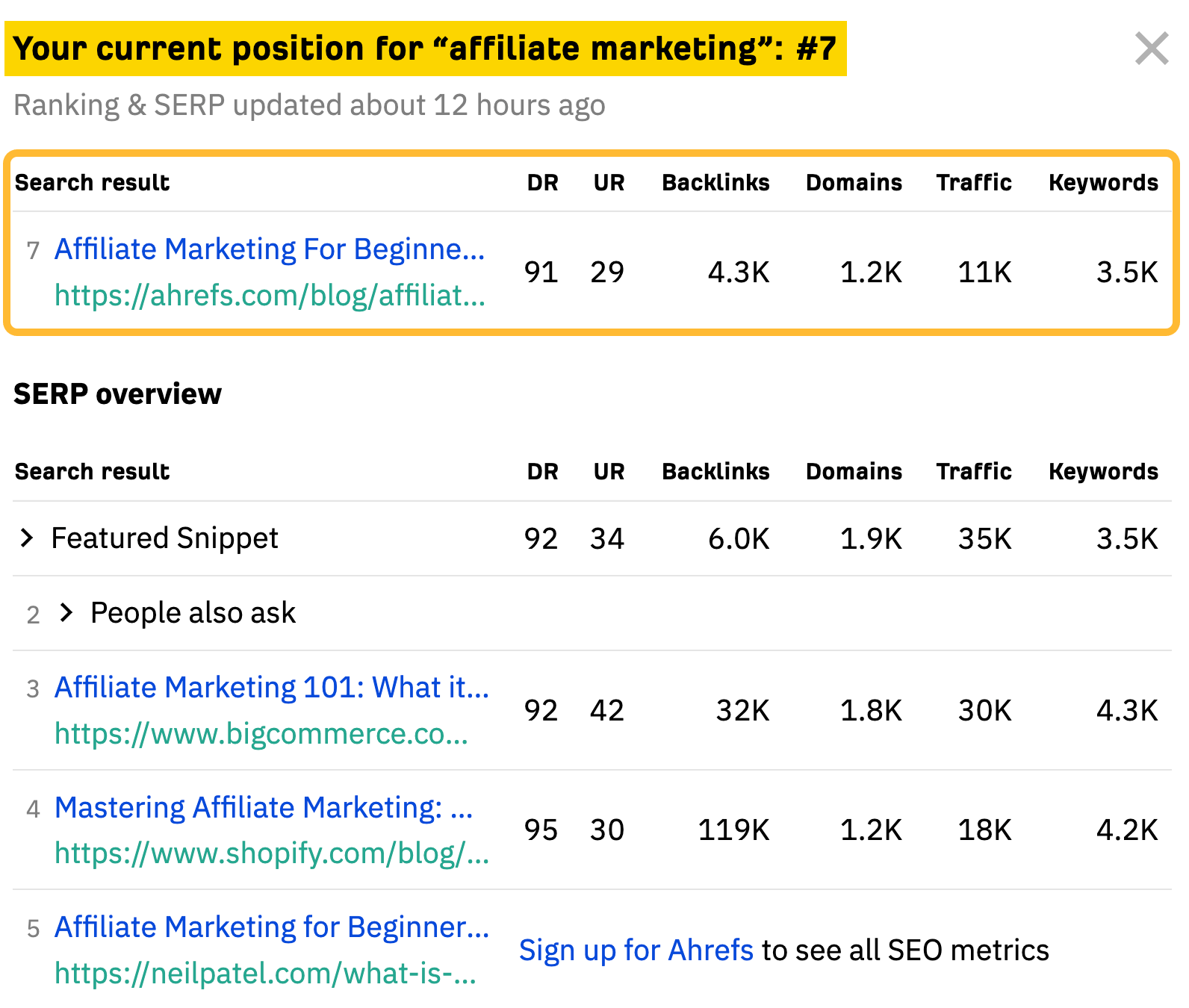
You can repeat this process for all your target keywords.
Your website will also rank for keywords that you are not targeting or haven’t thought of. You can check what these keywords are by signing up for a free Ahrefs Webmaster Tools (AWT) account.
Once you’ve signed up and verified your website, go to the Organic keywords report to see the:
- Keywords your website is ranking for.
- Exact URL ranking for those keywords.
- Exact ranking position.
- Search volume for those keywords.
- Amount of estimated search traffic your website receives by ranking for those keywords.
And more.

If you want to track rankings for a bunch of important keywords over time, you’ll need a rank tracking tool like Ahrefs’ Rank Tracker. This will run scheduled rank position checks, plus show you:
- Whether they’re improving or declining.
- If you’re ranking for SERP features.
- How much (estimated) search traffic the keywords are sending you.
And more.

You’ll also be able to track keywords in a specific state, city, or even ZIP code, which is important if you’re targeting local keywords:
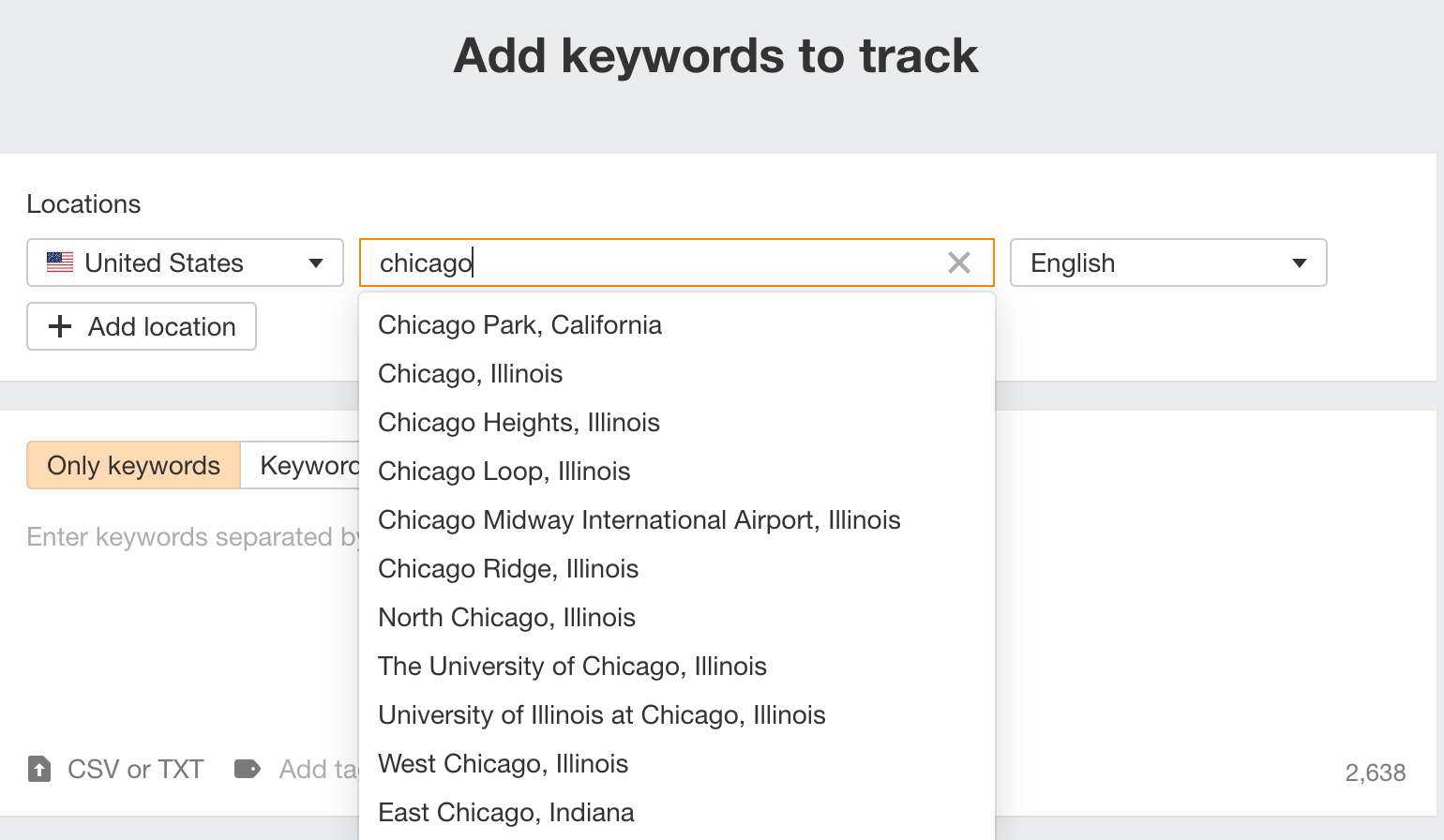
You can even add your competitors and see how you’re faring against them:
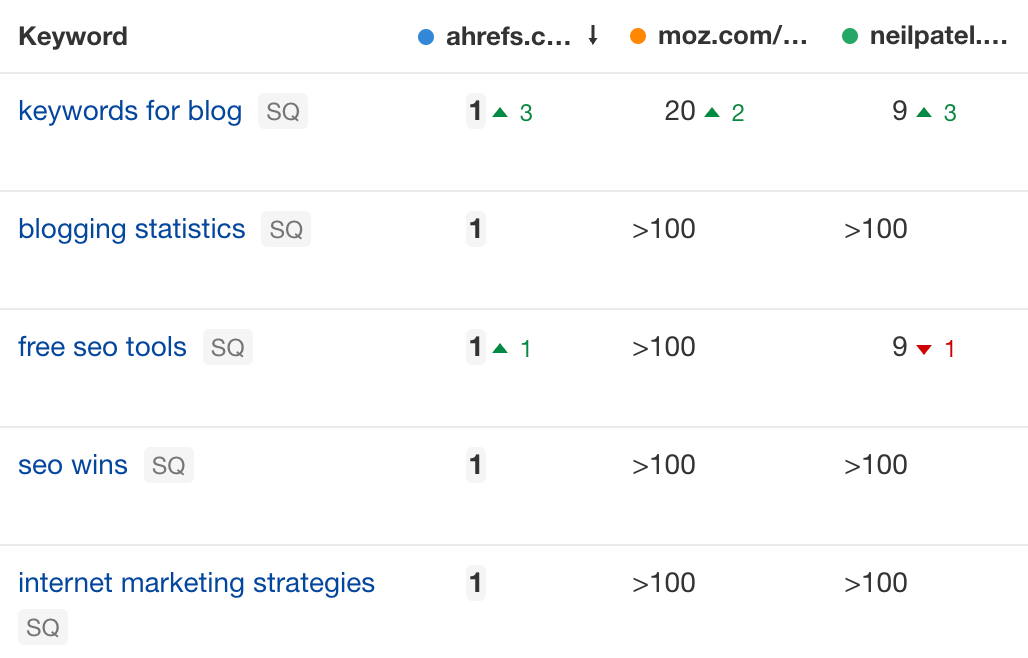
Follow these tips to make sure you’re actually getting value out of tracking your rankings and not just wasting time.
Don’t obsess over your rankings
Google is constantly adjusting search results, so there is some volatility to rankings.
It’s not uncommon to flicker between, say, positions #3 and #4. If you’re outside the top 10 search results, it can be even more volatile. For example, you may jump from position #67 to #43 “overnight.”
The point is this: Don’t obsess and check your rankings every day. Dropping a position or two is normal and not always indicative of a problem. There’s no need to constantly be optimizing. It’s better to look out for rankings trending downward over time, as this may indicate you need to do something.
If you’re using Rank Tracker, you can see this via the Grossing report:
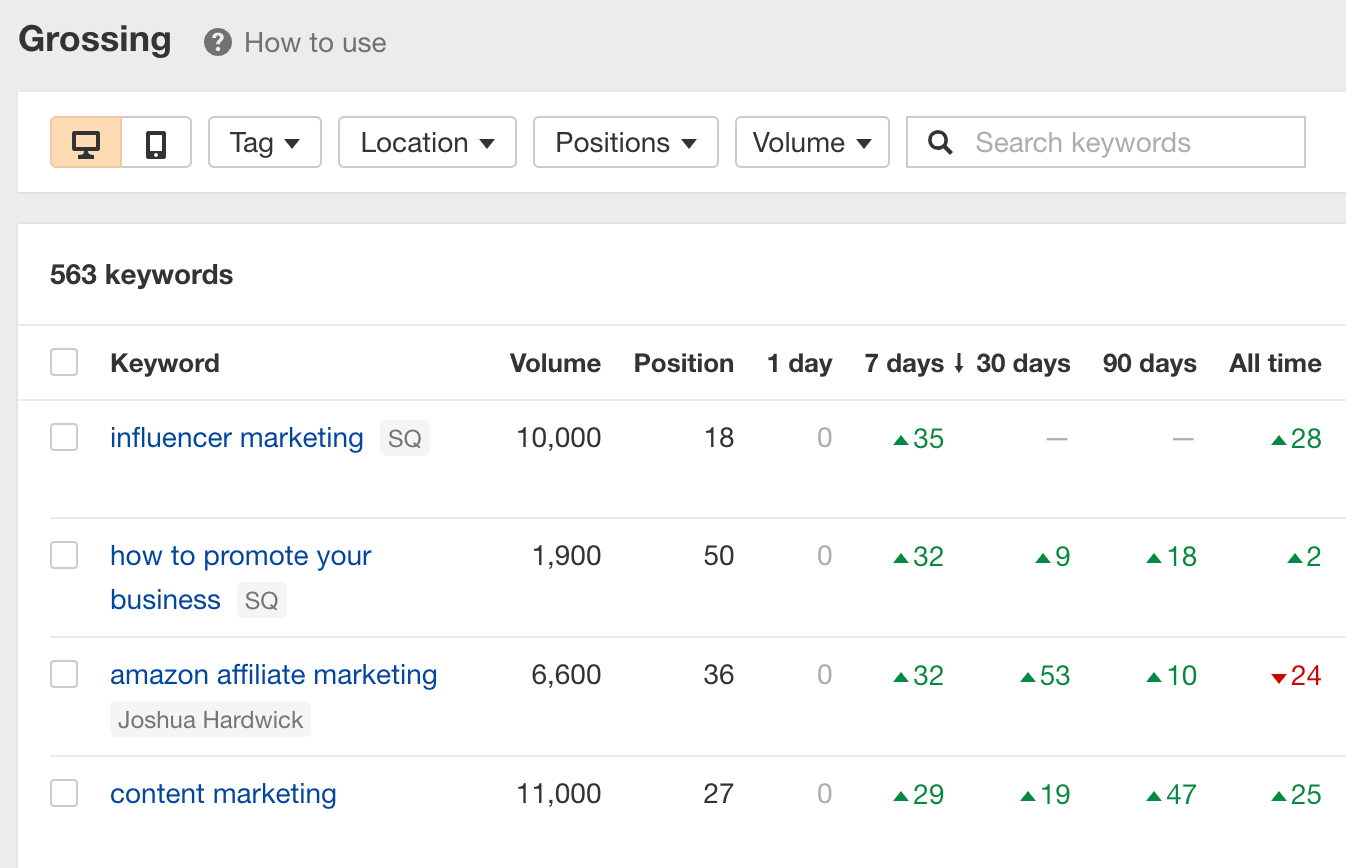
Don’t expect to rank high immediately
SEO takes time. In fact, most SEOs agreed that it takes between three to six months to show results.
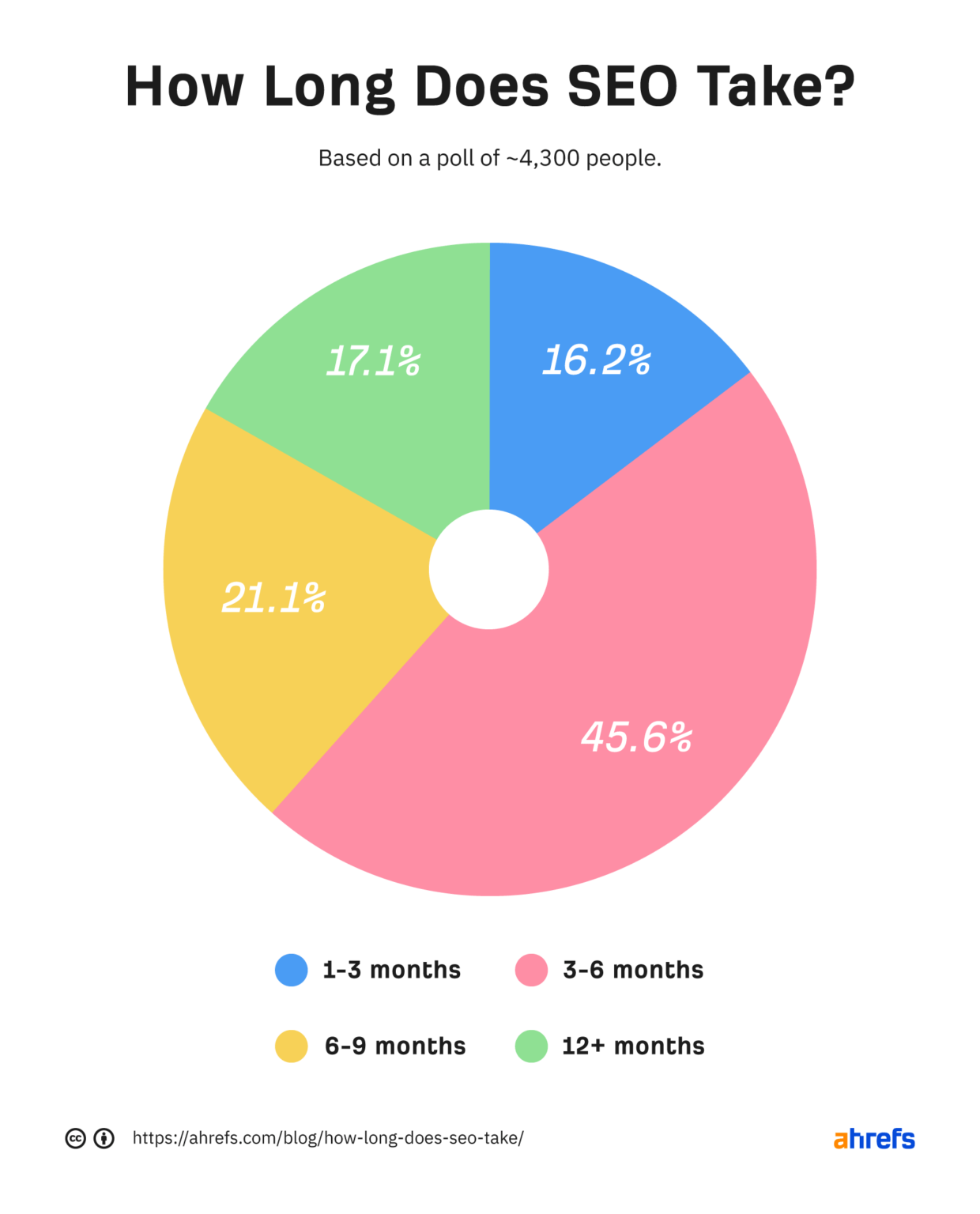
As long as the keyword you’re targeting is remotely competitive, it’s unlikely that your page is going to rank immediately. It needs time to earn backlinks, accumulate authority, and prove to Google it deserves to rank.
Follow the guide below to learn more about how to get backlinks to your site.
Know how different tools “count” positions
Google no longer shows just 10 blue links; it now shows many SERP features:

Different SEO tools may display them differently. For example, Google shows a “Related questions” SERP feature for many queries:
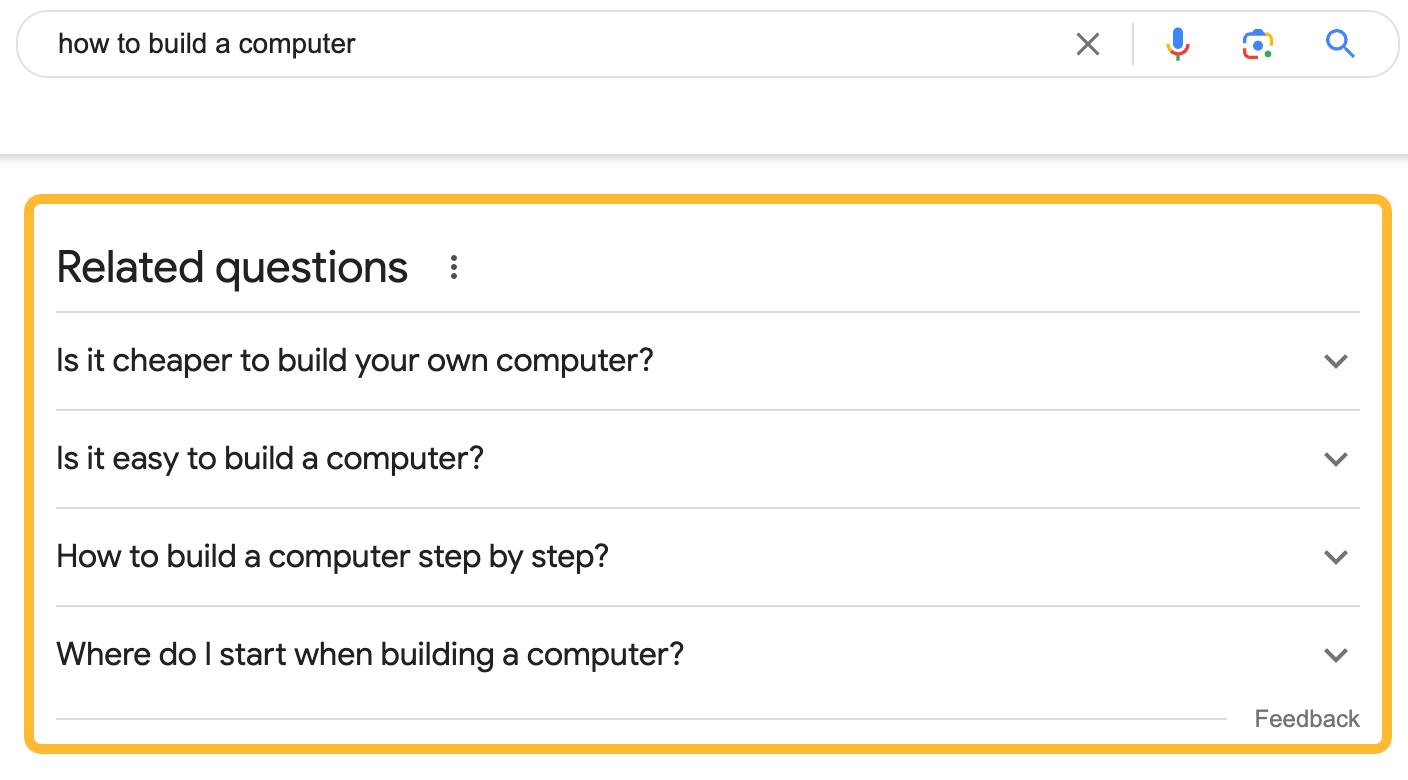
Some tools may choose to ignore this, as it’s not a “true” 10 blue links position. At Ahrefs, we count it as a position itself. (In fact, we count most SERP features as individual positions.)
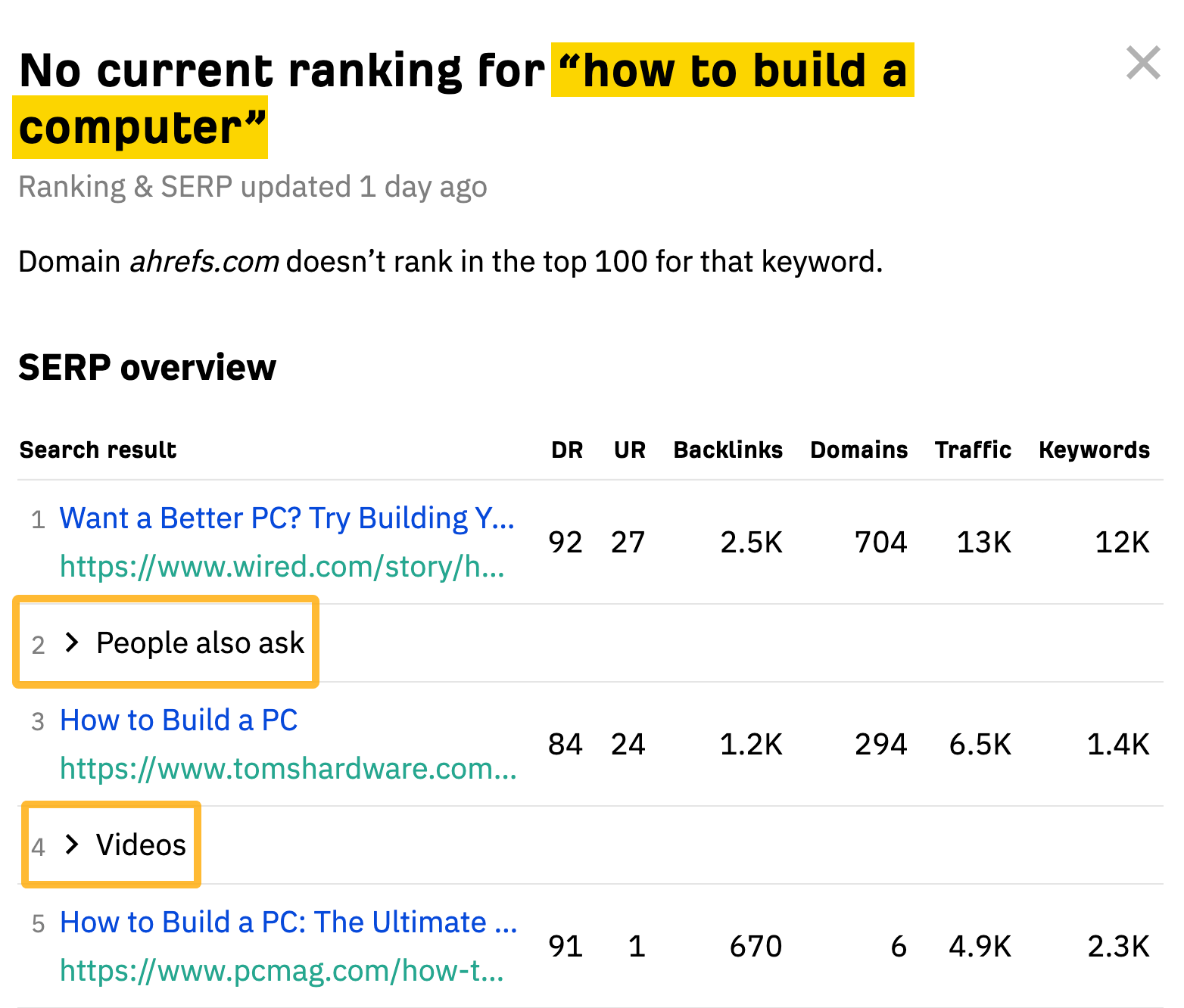
So there could be a possibility that you’re ranking in position #3 in Ahrefs but position #2 in another tool.
What’s next?
If you’re interested in figuring out where you’re ranking, you’ll likely also want to know how to improve your rankings (or fix them if they’ve declined). Follow these guides to learn more:
[ad_2]
Source link



